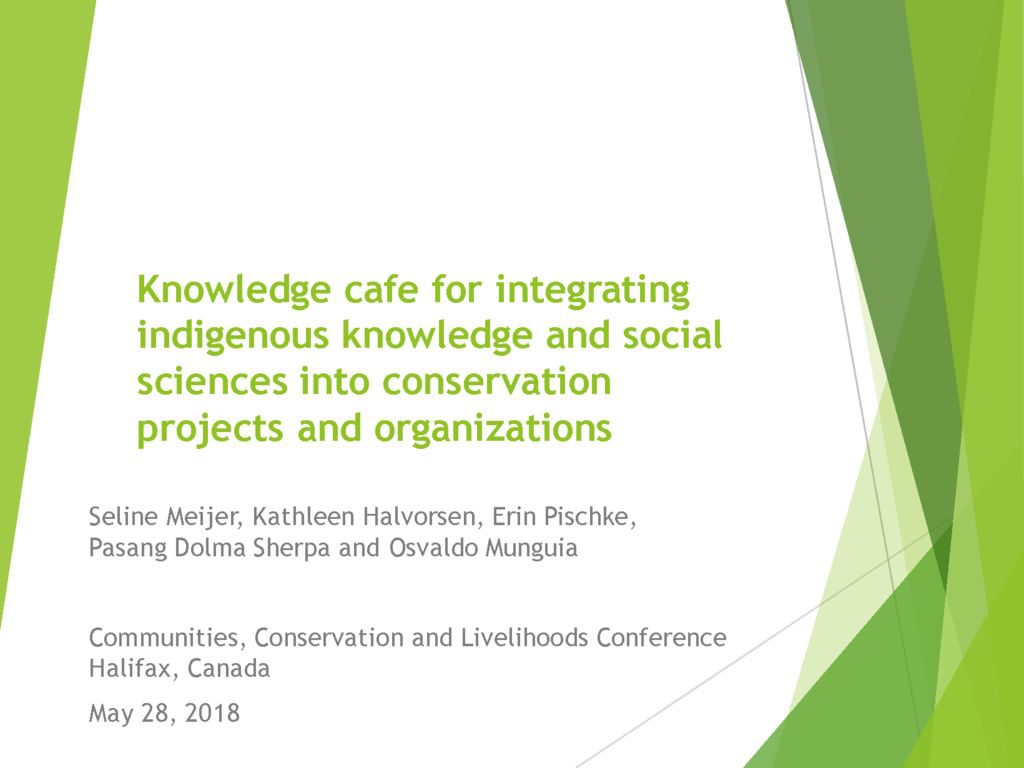21 Mar Factors of Success in Community Conservation – Knowledge Café
Win-wins for people and biodiversity are elusive. Conservation programs have traditionally focused on material poverty and livelihoods, yet such approaches have fallen short of revealing the complex connections between ecosystems and the wellbeing of different interest groups necessary to inform management. Therefore, the terms and frameworks used to elaborate social dimensions of conservation have progressed to include wellbeing, equity and justice, with increasing attention to the diverse knowledge systems of Indigenous Peoples and local communities. Those aims have also proliferated in policy, notably Aichi Target 11 of the CBD aiming for equitable management of protected areas by 2020.
Despite considerable demand for guidance and tools detailing how to incorporate social objectives into conservation, approaches remain poorly elaborated. There remains a paucity of evidence and uncertainty regarding through what forms of governance pursuing sustainable livelihoods, wellbeing, equity or justice may lead to enhanced conservation effectiveness. Establishing practical definitions, frameworks, principles and compiling evidence of best practice a key priority for applied research.
Key Themes:
Factors of Success in Community Conservation, Engagement, Education & Empowerment, Indigenous Issues, Governance, Rights & Conflict
Discussion groups:
- Exploring the contributions of biodiversity to the wellbeing of Indigenous Peoples and local communities and their role in sustainable management and conservation
- Helen Suich (Australian National University)
- Pasang Dolma Sherpa (CIPRED Nepal)
- Liza Zogib (DiversEarth/ The One Square Meter Project): linking cultural pastoralist practices and biodiversity through creative art and global community projects
- Advancing conservation metrics: Developing indicators for wellbeing and traditional ecological knowledge
- Eleanor Sterling (Center for Biodiversity and Conservation, American Museum of Natural History): Biocultural approaches to developing indicators of wellbeing
- Neil Cox (Conservation International): Representation of traditional and indigenous views in the IUCN Red List
- Integrating equity and rights into governance – linking local community experiences to conservation effectiveness
- Jenny Springer (IUCN CEESP Theme on Governance, Equity and Rights): The Natural Resource Governance Framework
- Nicole Gross-Camp (Allegheny College, USA): Socio-ecological costs and benefits in community conservation
- Neil Dawson (University of East Anglia/ University of Aberdeen/ IUCN CEESP): Connecting wellbeing and equity to conservation effectiveness



